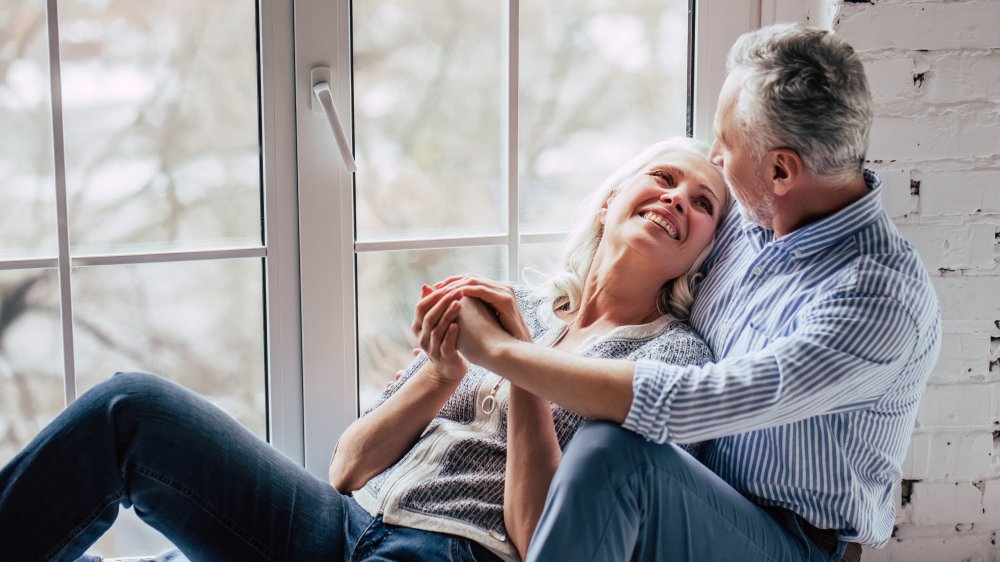The Real Difference Between Loving And Being In Love
Nearly every romcom, chick flick, and princess movie we've ever watched has fed into our fantasies of being swept off our feet, falling madly, deeply in love, and staying that way forever (and ever). But what happens after the credits have rolled and a few years have passed?
Author John Bradshaw, who coined the phrase "post-romantic stress disorder" says (via Psych Central) the "in love" experience is "dominated by the physical, when testosterone is off the charts for both people. That's what happens when you fall in love. The dopamine and norepinephrine kick in and suddenly you're higher than you've ever been. You may think you died and went to heaven — or hell."
Going from being in love to loving
But that feeling doesn't last too long (Bradshaw reckons about 18 months) before reality sets in. While some see that as the beginning of the end, others see it as a chance to build a more stable, sustainable relationship. Once a couple has transitioned from the hormone-fuelled highs of being "in love," the expectation of being perfect all the time wears off, and two partners begin loving, which is when they are able to see each other for who they are.
As one woman tells Psychology Today, "It isn't a matter of letting oneself go, but giving each other a break. When we were dating and first married, it was really important to me to look my best all the time. I'd race out of bed in the morning and do my hair and makeup quickly so Dan [my husband] wouldn't see what I really looked like first thing in the morning. Now, after having two kids together and juggling our lives, their activities, and our jobs, there isn't time for all the small details that used to be so major. We're both dedicated to staying fit and healthy — for our kids and for ourselves. But Dan has seen me through a lot more than tousled hair and no eye makeup — and we love each other, as is, more than ever!"
Examining compassionate love and passionate love
Relationships may not strictly be about loving or being in love, but about something else altogether. Social psychologist Elaine Hatfield and History Professor Richard Rapson, who are married to each other, say there are two types of love: compassionate love and passionate love.
They say that compassionate love is shared between two people and involves mutual respect, affection, attachment, and trust. Passionate love is all about intense emotions, sexual attraction, anxiety, and affection; if passionate love is exchanged between two people, they are happy; if it is not mutual, it can lead to despair in one person. As Psych Central puts it, the best relationships are the ones that are able to combine both.


